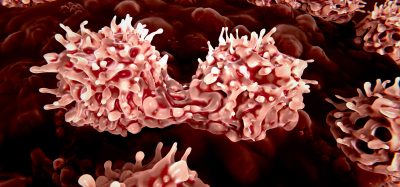Researchers identify stem cell population important in the growth of colon cancer
Posted: 17 June 2015 | Victoria White
Researchers at Lawson Health Research Institute have identified a new stem cell population in the colon linked to colon cancer growth…

Researchers at Lawson Health Research Institute have identified a new stem cell population in the colon linked to cancer growth.
The findings could significantly change the way we study and treat colon cancer.
Dr Samuel Asfaha, a clinician-scientist at Lawson and an assistant professor of medicine at the Schulich School of Medicine & Dentistry, Western University, and his colleagues at Columbia University (New York), have identified a previously unknown, long-lived radiation-resistant stem cell population in the colon. Most importantly, they also found that these stem cells can give rise to colonic tumours and sustain their growth. Tissue stem cells are unique cells essential for normal tissue maintenance and regeneration. Their unique characteristic of longevity, however, makes them the most likely cell of origin for cancer. In this study, the researchers sought to identify whether more than one tissue stem cell population exists within the colon which could be a source of colon cancer.
The discovery could lead to new forms of therapies to target colon cancer
According to Asfaha, the identification of the cellular origin of cancer, specifically colon cancer, is critical to the understanding of how cancer arises, as well as for the identification of new targets for drug therapy.
“The identification of more than one stem cell pool in the colon has proven challenging,” stressed Asfaha. “These findings are exciting as we have identified an important new target for cancer therapy. It is also proof that more than one stem cell can give rise to and sustain tumours, telling us that our cancer therapy needs to target more than one stem cell pool.”
Until now, the only stem cell population linked to colon cancer was radiation sensitive, leading physicians to believe that radiation therapy was effective. “With this new information, we now know this is not always true and we must find new forms of therapy to target the disease,” says Asfaha.
The study findings have been published in the journal Cell Stem Cell.
Related topics
Stem Cells
Related organisations
Cancer Research






